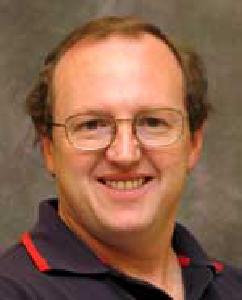Peter Young
September 13, 2007

Bio
Dr. Peter M. Young received his Ph.D. in Electrical Engineering from California Institute of Technology in 1993, and worked for two years as a Postdoctoral Associate at Massachusetts Institute of Technology, before joining the faculty of Colorado State University in 1995. He has worked extensively on the development of advanced analysis and design techniques for large-scale uncertain MIMO systems, subject to both multiple uncertain parameters, and multiple dynamic uncertainties. This work provided a breakthrough in this area, where previous tools could only handle small problems because of the computational burden, and Dr. Young developed computational software packages which were released commercially as part of the MATLAB Robust Controls toolbox.
Currently Dr. Young is an Associate Professor at Colorado State University. His recent research interests include the development of analysis and design techniques for robust learning controllers, capable of adaptation whilst maintaining guaranteed robust stability. He has carried out this theoretical work in parallel with efforts in a number of specific application areas. These include structural vibration suppression and disk drive servo control, control of HVAC and energy storage systems, power system distribution grids and sustainable energy, and control of biological systems - specifically algae growth for biodiesel production.
Abstract
It is well known that real physical systems cannot be exactly described by mathematical models, though such models are a prerequisite for many controller analysis and design techniques. Thus one has to deal with the issue of “uncertainty” in mathematical models. Robust control theory deals with this issue by providing controllers which are robust to the uncertainty, i.e., they work for all allowed values of the unknowns. This provides rigorous stability and performance guarantees but necessarily sacrifices performance. The approach taken in learning control is to try to “learn” these uncertainties on-line in real-time, and hence converge to a controller that is specifically tuned to the dynamics of this particular plant. This has the potential to deliver “optimized” performance, but the problem arises as to how to get there. One typically has no a-priori guarantees about the performance or even stability of the learning controller. This is clearly not acceptable in a practical (non-simulation) environment. In this talk we will discuss a technique for the development of robust learning controllers. These attempt to deliver the best of both worlds, by using each approach to deal with the shortcomings of the other. Our application area for this work is HVAC systems. These are systems which are complex, time-varying, nonlinear, with poorly understood, but slow, dynamics. This makes them an ideal candidate for our approach, and we will discuss our results to date with an experimental testbed for HVAC control that we have developed.